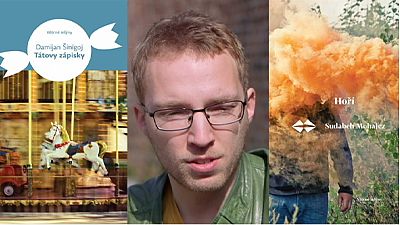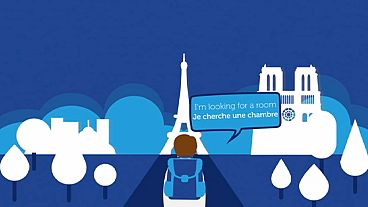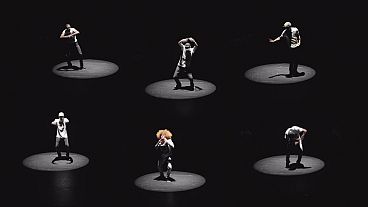Getting a job these days, you have to jump through hoops – do all sorts of acrobatics. Julian Laß from Hamburg, Germany is supplementing his CV, enhancing his ‘soft skills’.
By performing in a circus, Julian, whose situation has not exactly thrown career opportunities at him, has become less timid, more confident, and, it is hoped, more attractive to potential employers.
Previously Julian had no interest in acrobatics. He stayed at home and rarely wandered out. Now all that has changed.
“I’ve become a more open person,” he says. “Nowadays, it’s not a problem for me to face the public. Doing this has shown me that it’s possible to create something out of nothing.”
He has also found a previously undiscovered talent for teaching others: “I can help people if a problem comes up,” he says. “Normally, I learn things very easily and I try to give a hand to those who are not as fast as I am, to help them understand how things work.”
Paul Moschinski is part of the same programme. In his case the pursuits triggering his soft skills are drawing and music.
“I do things now that people didn’t know I was able to and that caught them by surprise,” he says.
“Before the project, I was a very normal guy, I just went from home to school and back. I would never show all my skills. Now, people know me, they recognize me on the streets.”
Europe is backing a similar project called Charism. Once again, participants pursue their interests and learn to do things well. It does wonders for your confidence. And employers like confident people.
“The Charism Project is all about helping young people make the transition from school to work smoothly,” says Heike Köln-Prisner, Charism Project Manager. “In order to be able to build self-confidence, they need to reflect on their own strengths and they need to see what they still have to do.”
To help participants weigh up their achievements, they have created a Charism Passport.
Informal competencies – hobbies, volunteering, inter-personal skills – stand alongside more formal ones like education.
“First of all it is helping them find out about their strengths, potentials and their direction,” says Köln-Prisner. “Second, it gives them some instruments and documents to show for it. And thirdly it gives them a reflective competence that you gain by doing the process with someone supporting you.”



